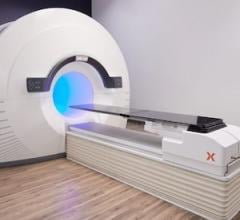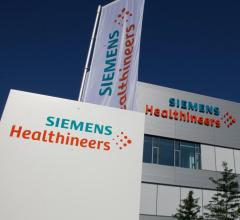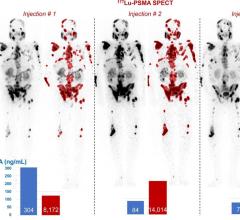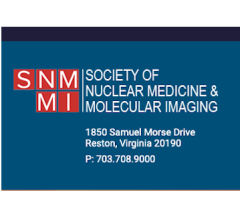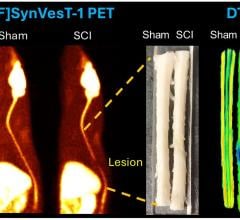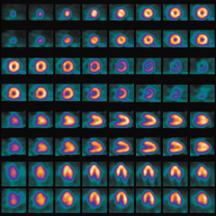
January 26, 2010 – The U.S. Department of Energy’s National Nuclear Security Administration (NNSA) selected GE Hitachi Nuclear Energy (GEH) to help develop a U.S. supply of a radioisotope used in more than 20 million annual, domestic diagnostic medical procedures.
NNSA chose GEH to help create a reliable U.S. supply of molybdenum-99 (Mo-99) without the use of highly enriched uranium (HEU) to respond to a shortage from repeated, unplanned outages at facilities where it currently is produced.
Mo-99 is the precursor of technetium-99m, the radioisotope most widely used in nuclear medicine diagnostic procedures. It is used for the detection of cancer, heart disease and thyroid disease, along with the study of brain and kidney function and the imaging of stress fractures, according to the Society of Nuclear Medicine.
GEH’s new technology does not rely on the fissioning of HEU, advancing a key nonproliferation initiative for the United States. Because GEH’s technology can be used in existing nuclear reactors, the need to build new reactors dedicated to isotope production is reduced.
“NNSA is committed to supporting technology that offers a new path forward for the creation of a reliable, domestic supply of molybdenum-99 without the use of HEU,” said NNSA Administrator Thomas D'Agostino. “This pragmatic approach addresses a critical U.S. medical community need while supporting President Obama's goal of reducing the risk posed by global use of HEU.”
Deploying GEH’s isotope production technology potentially could meet at least 50 percent of the United States’ projected supply needs for the isotope to help ensure patient access to vital medical diagnostic procedures. GEH will conduct research and development to confirm its technology at commercial scale and determine the infrastructure and logistics needed to support commercial operation.
“We are seeking some short-term solutions that have long-term potential, and the GEH technical solution provides a path forward that is quite attractive to meet both these needs,” said Robert Atcher, M.D., Ph.D., past president of the Society of Nuclear Medicine, who evaluated GEH’s isotope technology.
With a half-life of only 66 hours, Mo-99 must be delivered to hospitals on a frequent and consistent basis. Mo-99 decays into technetium-99m, the radioisotope used in about 80 percent of all nuclear medicine procedures.
“We are pleased to work with NNSA to address this isotope challenge,” said Chris Monetta, GEH senior vice president, advanced programs, nuclear fuel cycle. “Our technical approach holds great promise for helping to ensure that a safe and reliable supply of molybdenum is available to help doctors care for their patients.”
GE has more than a half-century of experience in providing isotopes for medical and industrial applications. The GE Test Reactor (GETR), which began operating in 1959, was the first commercially licensed test reactor in the world. GE developed many of the standards and specifications used in the isotope market today. As a result of work performed at GETR, GE produced 30 isotopes, including Mo-99, for medical and industrial uses.
GEH recently announced a landmark agreement with Exelon Generation Company for a pilot project to meet growing demand for cobalt-60, a radioisotope used for treating cancer and other biomedical applications.
For more information: www.gepower.com


 February 13, 2026
February 13, 2026 


